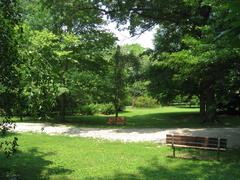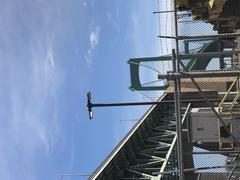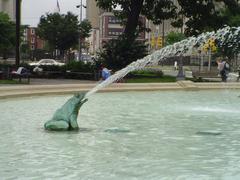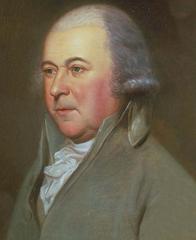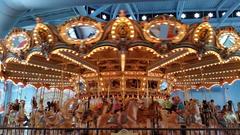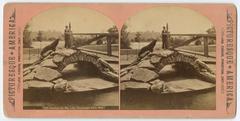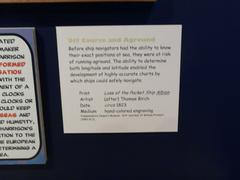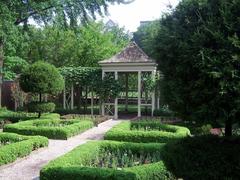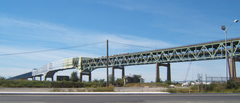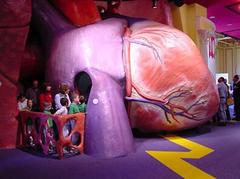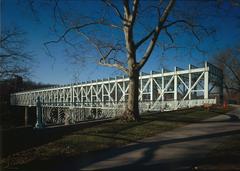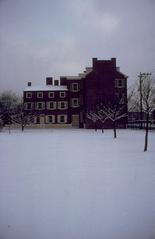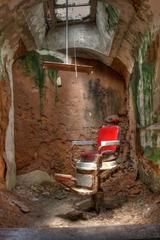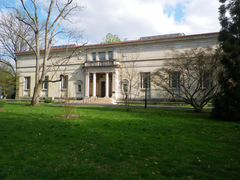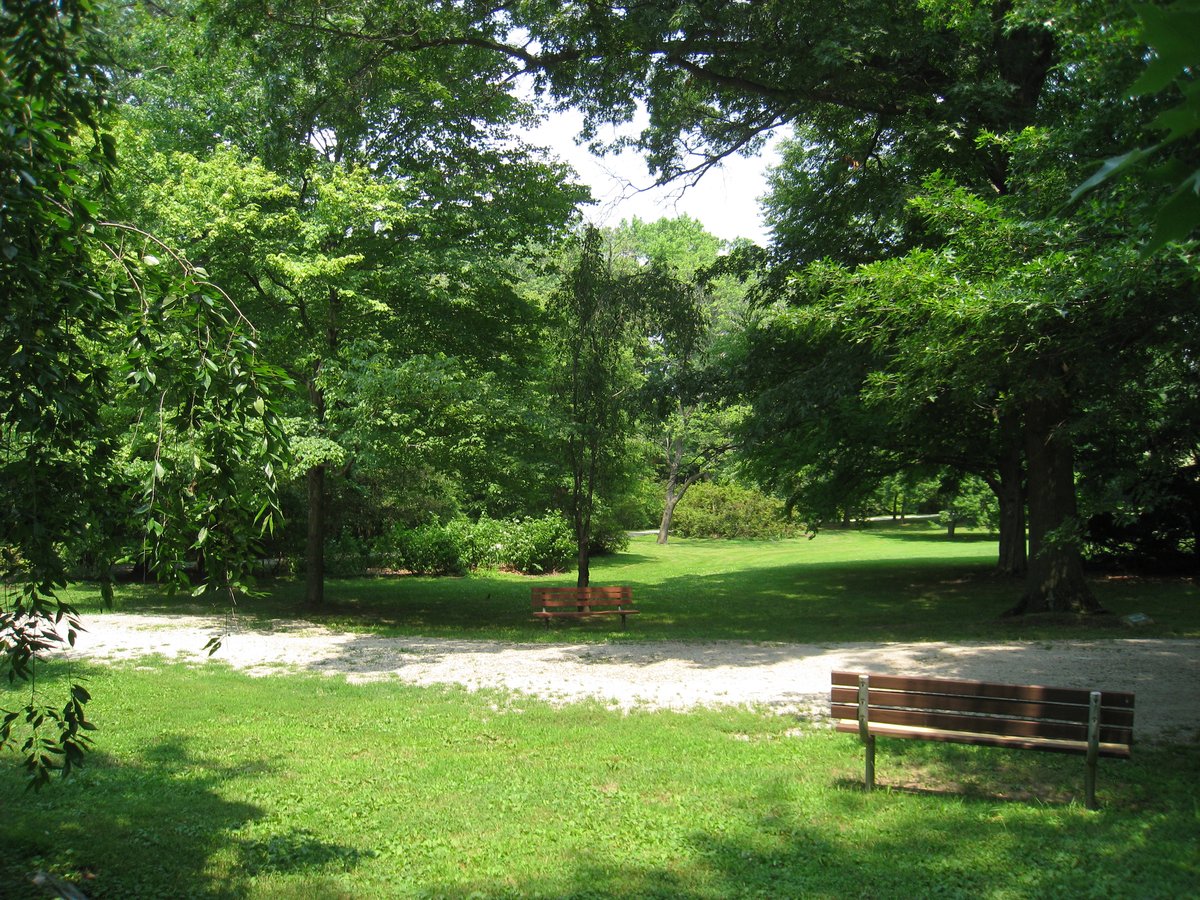
Visiting Merion Botanical Park: Everything You Need to Know
Publication Date: 31/07/2024
Introduction to Merion Botanical Park
Merion Botanical Park, located in Merion, Pennsylvania, is a 13.5-acre sanctuary that offers a peaceful retreat from the hustle and bustle of everyday life. Established in 1944 by the Botanical Society of Lower Merion, the park has been a cornerstone of the community, providing a space for both relaxation and education. The park’s founding is particularly notable, with Laura Barnes, wife of the famous art collector Albert C. Barnes, playing a significant role in its establishment (Wikipedia). Over the years, Merion Botanical Park has become a rich tapestry of native and exotic plant species, making it a haven for botany enthusiasts and nature lovers alike.
Visitors can immerse themselves in the beauty of azaleas, dogwoods, magnolias, cut-leaf maples, and more while enjoying the park’s serene walking trails and picnic areas (WhichMuseum). The park also serves as a community hub, hosting various events and educational programs aimed at promoting environmental awareness and conservation. Its proximity to historical landmarks, such as the Merion Meeting House, further enhances its appeal, offering a blend of natural and cultural experiences (Best Attractions).
Whether you are a local resident or a visitor to the Philadelphia area, Merion Botanical Park provides a unique opportunity to connect with nature, learn about plant species, and participate in community-driven initiatives. This guide will offer comprehensive information on visiting hours, ticket prices, nearby attractions, and more, ensuring you make the most of your visit to this botanical gem.
Table of Contents
- Introduction
- Visiting Merion Botanical Park: Hours, Tickets, History & More
- Visitor Tips for Merion Botanical Park: Best Times, Tickets, and Attractions
- Conclusion
Visiting Merion Botanical Park: Hours, Tickets, History & More
Founding and Early Development
Located at 100 Merion Road, Merion Botanical Park was established by the Botanical Society of Lower Merion. Laura Barnes, the wife of the renowned art collector Albert C. Barnes, was among the notable founders. This city park and botanical garden have provided a tranquil environment for visitors for decades (Wikipedia).
Community Involvement and Management
Since its inception, the Botanical Society of Lower Merion has played a vital role in the park’s management. The park has seen numerous community-driven initiatives, including a significant renewal effort in 2012 led by Earley. This effort brought together diverse groups to clear the park of 1,000 pounds of trash, showcasing the community’s commitment to its upkeep (Wikipedia).
Flora and Fauna
Merion Botanical Park is home to a diverse array of plant species, including azaleas, dogwoods, magnolias, cut-leaf maples, redbuds, rhododendron, and viburnum. These plants add to the park’s aesthetic appeal and offer a unique experience for visitors (WhichMuseum).
Accessibility and Amenities
The park is open daily, and admission is free, making it an excellent option for cost-effective outdoor activities. It is easily accessible and provides a serene environment for relaxation (WhichMuseum).
Historical Significance
Located near other historical landmarks, such as the Merion Meeting House built in 1695, the park adds to the historical richness of Lower Merion. The Merion Meeting House is a National Register of Historic Places landmark, further highlighting the area’s historical significance (Best Attractions).
Visitor Information
- Visiting Hours: The park is open daily from dawn to dusk.
- Tickets: Admission is free.
- Travel Tips: Wear comfortable walking shoes and bring a camera to capture the park’s beauty.
Nearby Attractions and Events
Merion Botanical Park is close to several other attractions, making it an ideal starting point for a day of exploration. The park hosts various community events, fitness activities, and family gatherings, enhancing its role as a community hub (Best Attractions).
Environmental and Educational Impact
The park is committed to environmental conservation and offers educational programs in collaboration with local schools and organizations. These initiatives aim to promote botany and environmental awareness (Wikipedia).
Future Prospects
Merion Botanical Park continues to thrive, with ongoing efforts to preserve its natural beauty and adapt to community needs. The park’s management is dedicated to maintaining this cherished green space for future generations (WhichMuseum).
FAQ
- Is there an entrance fee? No, the park is free to enter.
- What are the park’s opening hours? The park is open daily from dawn to dusk.
- Are there guided tours available? Currently, there are no regular guided tours, but special events may include guided walks.
- Can I bring my pet? Pets are allowed but must be kept on a leash.
Visitor Tips for Merion Botanical Park: Best Times, Tickets, and Attractions
Best Time to Visit
The optimal time to visit Merion Botanical Park is during the fall, from September to early December. During these months, the weather is mild and pleasant, making it ideal for outdoor activities and exploration. The park’s foliage transforms into a vibrant display of autumn colors, providing a picturesque backdrop for walks and photographs. Additionally, the fall season in Philadelphia is marked by various cultural events and festivals, enhancing the overall visitor experience (Nomad Footsteps).
Spring is another excellent time to visit, as the park’s flora begins to bloom, offering a serene and colorful environment. The fewer crowds during this season allow for a more relaxed and intimate experience with nature (Travellers Worldwide).
Visiting Hours and Tickets
Merion Botanical Park is open daily from 8:00 AM to 6:00 PM. Admission to the park is free, making it an accessible destination for everyone. However, some special events and guided tours may require a nominal fee. It is advisable to check the park’s official website for the latest updates on ticket prices and visiting hours.
Getting There
Merion Botanical Park is located in the Main Line area of Philadelphia, making it easily accessible by various modes of transportation. If you are driving, there is ample parking available near the park. For those using public transportation, the park is accessible via SEPTA’s Regional Rail service, with the Merion Station being the closest stop. From the station, it is a short walk to the park entrance.
What to Bring
When visiting Merion Botanical Park, it is essential to come prepared to make the most of your experience. Here are some recommended items to bring:
- Comfortable Walking Shoes: The park features several walking trails, so comfortable footwear is a must.
- Water and Snacks: While the park is a great place for a picnic, there are no food vendors on-site. Bringing your own refreshments is advisable.
- Camera: The park’s scenic beauty provides numerous photo opportunities, so don’t forget your camera or smartphone.
- Weather-Appropriate Clothing: Depending on the season, dress in layers to accommodate changing weather conditions. A hat and sunscreen are recommended for sunny days.
Park Amenities
Merion Botanical Park offers several amenities to enhance your visit:
- Walking Trails: The park has well-maintained trails that wind through various gardens and natural areas, perfect for leisurely strolls.
- Picnic Areas: Designated picnic spots are available, making it an ideal location for a family outing or a romantic picnic.
- Restrooms: Public restrooms are available near the park entrance for visitor convenience.
- Benches and Seating Areas: Throughout the park, benches and seating areas are strategically placed, allowing visitors to rest and enjoy the surroundings.
Activities and Attractions
Merion Botanical Park is not just a place for passive enjoyment; it offers various activities and attractions:
- Guided Tours: The park occasionally offers guided tours led by knowledgeable staff or volunteers. These tours provide insights into the park’s history, plant species, and conservation efforts.
- Bird Watching: The park is a haven for bird enthusiasts, with numerous species inhabiting the area. Bring binoculars for a closer look at the avian residents.
- Educational Programs: Throughout the year, the park hosts educational programs and workshops on topics such as gardening, botany, and environmental conservation.
- Seasonal Events: Keep an eye on the park’s event calendar for seasonal activities, such as flower shows, plant sales, and nature walks.
Accessibility
Merion Botanical Park is committed to being accessible to all visitors. The park features paved paths and ramps to accommodate wheelchairs and strollers. Additionally, accessible restrooms are available. If you have specific accessibility needs, it is advisable to contact the park in advance to ensure a smooth visit.
Nearby Attractions
While visiting Merion Botanical Park, consider exploring other nearby attractions to make the most of your trip:
- Jenkins Arboretum & Gardens: Located a short drive away, this arboretum offers a diverse collection of plants and beautifully landscaped gardens (The MacDonald Team).
- Valley Forge National Historical Park: A significant historical site, Valley Forge offers a glimpse into American history with its preserved Revolutionary War encampment.
- Haverford Reserve: This park features hiking trails, sports fields, and a nature center, providing a variety of recreational opportunities.
Safety Tips
To ensure a safe and enjoyable visit to Merion Botanical Park, keep the following tips in mind:
- Stay on Marked Trails: To protect both yourself and the park’s natural environment, always stay on designated paths and trails.
- Wildlife Awareness: While the park is home to various wildlife species, it is essential to observe them from a distance and avoid feeding them.
- Hydration and Sun Protection: Bring plenty of water and wear sunscreen, especially during the warmer months, to stay hydrated and protected from the sun.
- Emergency Contacts: Familiarize yourself with the location of emergency contact points and park staff in case of any issues or emergencies.
FAQ
Q: What are the visiting hours of Merion Botanical Park? A: The park is open daily from 8:00 AM to 6:00 PM.
Q: Is there an admission fee to enter the park? A: No, admission is free, but some special events and guided tours may require a fee.
Q: How can I get to Merion Botanical Park using public transportation? A: The park is accessible via SEPTA’s Regional Rail service, with the Merion Station being the closest stop.
Q: Are pets allowed in the park? A: Pets are not allowed in the park to ensure the safety and comfort of all visitors.
Q: Are there any food vendors on-site? A: No, there are no food vendors on-site. Visitors are encouraged to bring their own snacks and refreshments.
By following these tips and guidelines, visitors can fully enjoy the beauty and tranquility of Merion Botanical Park, making it a memorable part of their Philadelphia experience. For the latest updates and more information, be sure to download our mobile app Audiala, check out other related posts, or follow us on social media.
Summary and Final Thoughts
Merion Botanical Park stands as a testament to the power of community involvement and the importance of preserving natural spaces in urban environments. Since its establishment in 1944, the park has grown into a beloved destination for both residents and visitors, offering a diverse array of flora and fauna, educational programs, and a peaceful retreat from the urban landscape (Wikipedia).
The park’s commitment to environmental conservation and educational outreach ensures that it remains a valuable resource for future generations. From the vibrant blooms of azaleas and dogwoods to the serene walking trails and picnic areas, Merion Botanical Park provides a unique and enriching experience for all who visit. Its proximity to historical sites and other attractions in the Main Line area further enhances its appeal, making it an ideal starting point for a day of exploration (WhichMuseum; Best Attractions).
For those seeking a deeper connection to nature, a chance to learn about diverse plant species, or simply a tranquil place to unwind, Merion Botanical Park offers it all. Plan your visit today and discover the natural beauty and community spirit that make this park a cherished landmark in Lower Merion.
References
- Wikipedia, 2024, Various Authors (https://en.wikipedia.org/wiki/Merion_Botanical_Park)
- WhichMuseum, 2024, Various Authors (https://whichmuseum.com/museum/merion-botanical-park-merion-station-39211)
- Best Attractions, 2024, Various Authors (https://bestattractions.org/usa/pennsylvania/things-to-do-in-lower-merion-pa/)
- Triphobo, 2024, Various Authors (https://www.triphobo.com/places/merion-station-united-states/merion-botanical-park)
- Nomad Footsteps, 2024, Various Authors (https://nomadfootsteps.com/best-time-to-visit-philadelphia/)
- Travellers Worldwide, 2024, Various Authors (https://travellersworldwide.com/best-time-to-visit-philadelphia/)
- The MacDonald Team, 2024, Various Authors (https://themacdonaldteam.com/blog/a-guide-to-main-line-philadelphia-parks)
